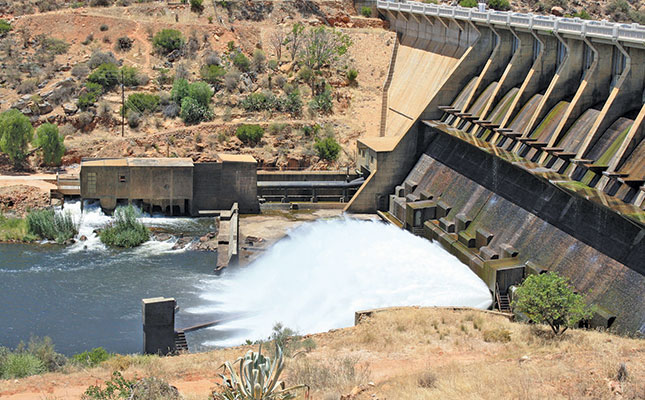
Photo: FW Archive
Water resource management in South Africa is in crisis, and this may have serious implications for agriculture.
This was according to Prof Anthony Turton of the Centre for Environmental Management at the University of the Free State.
READ Water management: rainwater harvesting and better storage
Speaking to Farmer’s Weekly, Turton, who was formerly with the Council for Scientific and Industrial Research, said the majority of the country’s water resources had been over-allocated or contaminated, and was therefore depleted.
Responding to Turton’s assertions, the Department of Water and Sanitation (DWS) denied that there was a water crisis unfolding in the country, adding that certain processes were underway to ensure that the country “does not get to [a] crisis”.
Spokesperson for the DWS, Sputnik Ratau, said the department had implemented several projects using the private-public partnership approach to lobby for and secure funding.
However, according to Turton, the first national water resource strategy launched in 2002 had already determined that 98% of all water resources in South Africa had been allocated, which he said meant that the country did not have enough water to meet current and future demands. The impact of climate change was only exacerbating the situation, he added.
READ Water stress affects more than 80% of SA cropland
Although South Africa had a National Water and Sanitation Master Plan, Turton said it was poorly funded and could not be effectively implemented, due to the lack of skills in the water sector.
But Ratau said the DWS anticipated that the National Water and Sanitation Master Plan’s goals would be achieved by 2030, provided that the current challenges could be overcome.
Meanwhile, Janse Rabie, head of natural resources at Agri SA, said that water resource management needed to be a matter of the highest national concern.
“Critical issues surrounding pollution, including acid mine drainage and sewage contamination, infrastructure decline, and the funding crisis within water boards and the DWS, are clearly apparent and need to be addressed as a matter of critical importance,” he said.
Some of the solutions that needed to be implemented, according to Rabie, was to increase water-use efficiency through appropriate and cost-effective technology, repair and maintenance of infrastructure, and the correct measurement and metering of water use.
While some of Rabie’s solutions applied to government action, he said that “addressing the challenges with respect to water requires that all South Africans truly appreciate the value of this resource and the importance of conserving and managing it properly”.











